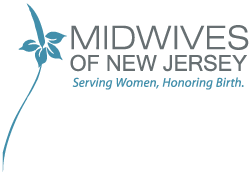According to a 2014 article in Trends for Molecular Medicine, the initial development of newborn gut health and maturation is highly dependent on maternal gut health. This is because a baby’s gut is populated by the mother’s microbiota (native bacteria found in the gut, on the skin, in the mouth, etc.) during vaginal delivery, skin to skin contact and breastfeeding.
Disrupting the transmission of microbiota by cesarean delivery has been linked to an increased development of celiac disease, type 1 Diabetes, obesity and asthma. Disruption of microbiota by prenatal antibiotics in the second or third trimester has been linked with an increased chance of developing obesity (by 84%).
At birth there is a large transfer of vaginal, fecal and skin microbiota from mother to baby. When a baby is breastfed, there is further colonization and maturation of the gut from the probiotics and prebiotics naturally found in breast milk.
According to researchers, the largest insults to a newborn’s microbiome are Cesarean delivery, prenatal antibiotics and formula feeding.
Why Gut Health is So Important
Gut health plays a vital role in our overall immunity. Our gut contains large amounts of diverse bacteria called the microbiota. The number of bacteria in our gut, outnumbers our genes 100-fold and has such significant influence on our metabolic and immune functions that the gut microbiota is being recognized as an independent organ. Other experts have referred to our gut as our second brain!
4 Reasons Midwifery Care is Good for Your Baby’s Gut
- The Midwifery Model of Care is a woman’s best chance of having a vaginal delivery. In 2015, the average cesarean rate for all women in the state of NJ was 33.9%. In 2015, our cesarean rate at the Midwives of NJ was 11.5%. In the State of NJ, the primary cesarean rate was 30.8%, compared with our rate of 5.6%. At the Midwives of NJ, we believe women are strong, capable and powerful. We believe they are able to manage their labor and don’t need “rescuing”, rather, they need support throughout the birth process, a process their bodies are designed for.
- Midwifery care also promotes immediate skin to skin (whenever safely possible) contact for increased bonding and transfer of the skin microbiota.
- We strongly encourage, support and assist our clients with breastfeeding.
- We promote wellness throughout the prenatal period through increased support during your prenatal visits and meetings each trimester with our Wellness Advisor, Sharon. We review nutritional recommendations regularly which promote a healthy gut and immune system, decreasing the likelihood of conditions that would warrant antibiotic use during the 2nd and 3rd trimesters.
7 Simple Steps YOU Can Take Today to Improve the Health of Your Future Children:
- Eat a whole-foods based diet, with specific emphasis on increasing organic, plant-based foods and decreased processed food intake.
- Incorporate more probiotic-rich foods such as kefir, raw sauerkraut, bone broth, kimchi, and cultured foods into your diet.
- Avoid refined sugar (found in processed foods and soft drinks)
- Take a high quality, whole foods based prenatal vitamin
- Take a high quality probiotic
- Supplement vitamins D and C to boost immunity
- Prepare your body, and gut, for conception – we recommend that you prepare your body for a minimum of 4 months prior to conception. Need more guidance? Consider attending our “How to Make a Baby” program, offered monthly at our Madison Location!
* Check out our Essential Market for Midwife-Approved products to ensure you are purchasing a high-quality product.







 Avoiding Cesarean: Do Early Labor at Home
Avoiding Cesarean: Do Early Labor at Home
